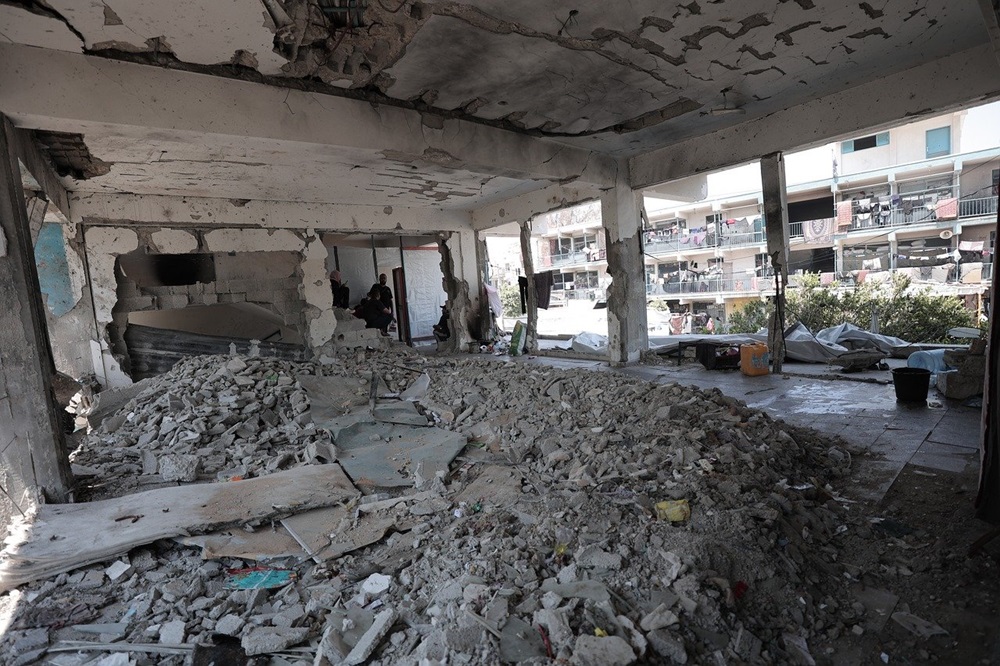Gaza: Ceasefire Must Mark End to Two Years of Death and Starvation
- Ingrid Jones
- Breaking News
- October 9, 2025

After two relentless years of bombing, displacement, and famine, the announcement of a ceasefire agreement between Israel and Hamas has brought a fleeting moment of hope to the people of Gaza — hope that, this time, the guns might truly fall silent and the suffering might finally begin to end. Jan Egeland, Secretary General of the Norwegian Refugee Council (NRC), issued a powerful statement following the announcement, urging all parties to act with good faith and humanity to ensure that the truce is not just another pause before renewed devastation.
“Today’s announcement of a ceasefire agreement between Israel and Hamas offers a glimmer of hope after two years of unrelenting death, destruction and displacement in Gaza,” Egeland said. “Both parties must act in good faith and do everything possible to ensure that the truce holds.”
His statement underscored the urgent need for a full commitment to end hostilities, release hostages and Palestinian detainees, and allow aid organizations unfettered access to deliver critical relief. Millions of Gazans have been driven from their homes, with famine spreading rapidly and infrastructure in ruins. “Stopping the bombing alone will not end survivors’ suffering,” Egeland continued. “Displacement is widespread. Famine is still spreading. Essential infrastructure has been destroyed. Humanitarian organisations must have full, unrestricted access to bring in food, medicine, shelter materials, and other essential supplies that Gaza has been deprived of for two years.”
The NRC has already prepared hundreds of truckloads of emergency supplies — including shelter materials, education kits, and hygiene packages — ready to enter Gaza the moment access is granted. Their teams are on the ground, ready to expand operations and deliver life-saving aid. “We call on the international community to ensure Israel facilitates our access,” he urged.
Egeland cautioned that the world cannot afford another cycle of temporary truces followed by renewed violence. “We must not repeat the mistakes of previous ceasefires. This truce cannot be another fragile pause before renewed bloodshed,” he warned. “Israel must not use it as an opportunity to escalate military operations and enable settler violence in the West Bank, including East Jerusalem.”
But the call went further than a plea for calm. It was a demand for justice and a durable peace — one that addresses the underlying roots of the conflict and the decades-long occupation that has denied Palestinians their fundamental rights. “We also cannot return to the status quo that existed before 7 October,” Egeland stated. “The international community must use this moment to pursue a just and lasting solution that provides security guarantees for Israel, ends the occupation, supports a Palestinian-led reconstruction process, and ensures Palestinians’ rights, including the right to self-determination.”
After two years of starvation and mass death, Gaza cannot endure another false dawn. The ceasefire must not be treated as a diplomatic checkbox or a temporary reprieve; it must be the first chapter in rebuilding lives, restoring dignity, and holding accountable those who perpetuated such extraordinary suffering. “Today must mark the beginning of a permanent end to hostilities and a path toward peace, justice, and accountability,” Egeland concluded.
For Gaza’s two million residents — many of whom have known nothing but airstrikes, hunger, and displacement — the world’s response to this ceasefire will determine whether this fragile hope survives.








